Croatia Trucking Companies Slapped with Fines for Migrant Stowaways
March 11, 2020 - In addition to foreign and domestic truck carriers having problems at border crossings due to the coronavirus, they are also taking a financial hit from the migrant situation, not at the Italian border, but at the Serbian border with Croatia.
Migrants Jumping into Trucks from Overpasses
“Transportation and road transport and are the blood vessels of the economy and they must function. Truck carriers were instructed to tell their drivers how to behave regarding the coronavirus, but as far as migrants were concerned, they were not. They can’t do anything about it because migrants are jumping onto trucks from overpasses at night, cutting the tarpaulins, then settling in and waiting for the trucks to cross the border. The material damage and financial burden to carriers is immeasurable. And even when migrants are found in their trucks, the carrier is found guilty,” said Marijan Banelli, a traffic lobbyist, at Studio 4 on HRT (Croatian Radio Television).
A 28,000 HRK (3696 EUR) fine was slapped on the carrier Mario Ćurak, for example. Three migrants were found in his truck, and after Ćurak complained to customs in Osijek, the sentence was increased to 39,000 HRK (5148 EUR) and he was "neither guilty nor indebted" according to Novac/Jutarnji List on March 11, 2020.
“I have 12 trucks and every morning I expect another driver to call me and say that they have found migrants in his truck. We don’t have anything to do with this. Anything outside the cabin should not be our responsibility,” complained Ćurak.
His colleague Zeljko Marić has found migrants in his truck three times, and the last time was about three weeks ago.
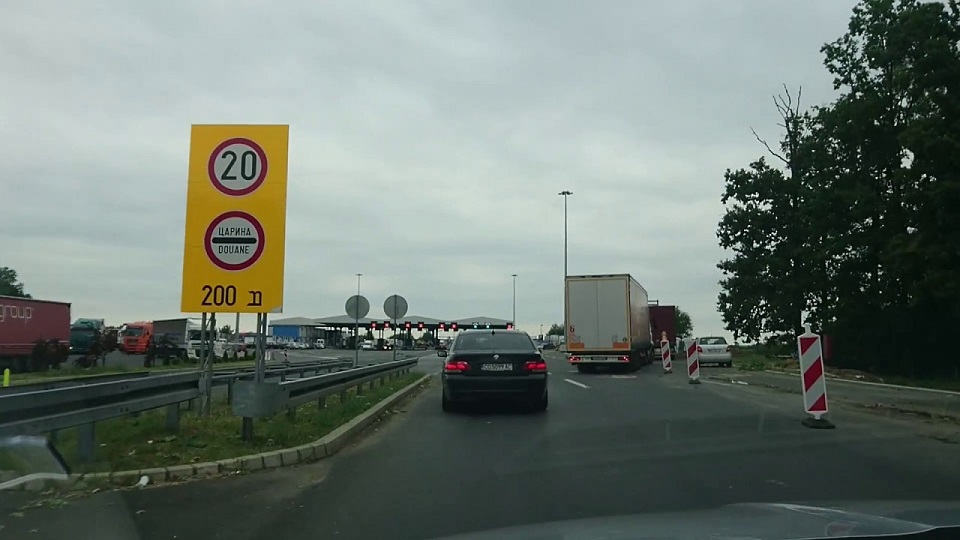
Batrovci | YouTube
Croatia Fine for Carriers Found with Illegal Migrants: Up to 3036 EUR
If the driver is a foreign citizen who holds a work permit, customs confiscates the truck and the goods and the driver cannot continue until the fine is paid, which is on average 22,000 to 23,000 HRK (2904 to 3036 EUR). And we cannot delay payment for seven days, for example,” claims Marić.
“I think that the Croatian government must come forward and take responsibilty to protect the Croatian people, our carriers and drivers, because this behaviour is just protecting migrants. They must be treated as illegals who are crossing the border. The coronavirus is a force of nature, but migrants are not. The problem of Bajakovo (Croatian border town) and Batrovci (Serbian border town) must be resolved at the bilateral level, but Brussels must also be included because this is essentially a true Schengen border,” Banelli concluded.
Follow this page and our Politics page for Total Croatia News updates on the migrant crisis in Croatia.
Turkey Advises Migrants on Routes to France, Germany: Avoid Croatia
March 6, 2020 - Turkey has released a map of route options for migrants hoping to reach France and Germany, and Croatia has been bypassed. Greek media outlets recently reported Turkey's geographical map with "routes" running from Turkey into Western Europe.
They claim that it is further evidence that Ankara has officially participated in the developing crisis by encouraging migrants and refugees to enter the EU illegally. The map, along with instructions in Arabic, was published by the official Turkish state television TRT Arabic and posted on their Twitter page and Facebook page on February 28, 2020.
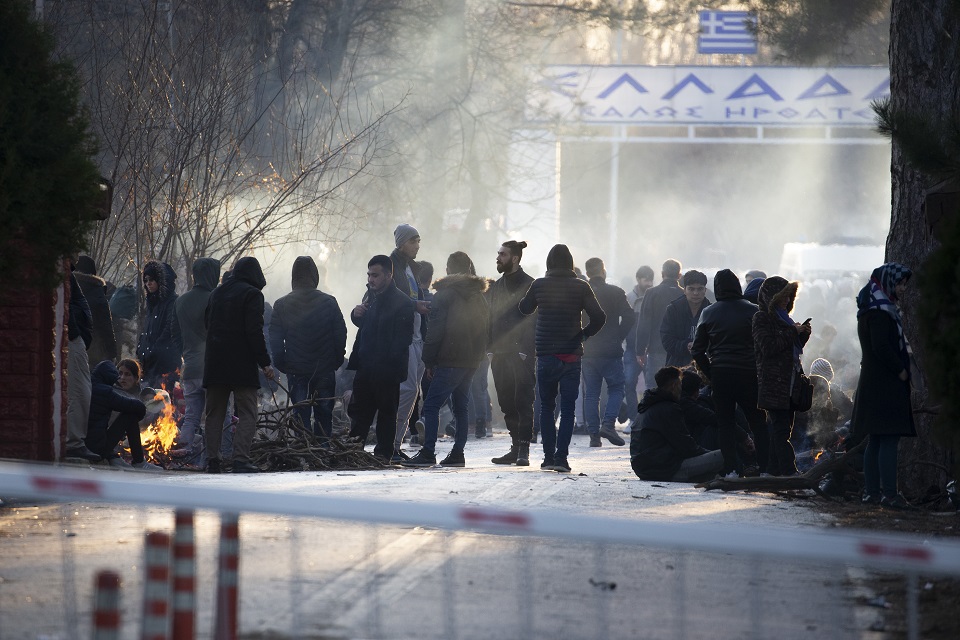
Turkey Migrant Map Shows Five Routes to France, Germany
According to the map, migrants and refugees are directed to five route options through Turkey to five "entry points" to Greece: four on its islands, and one via the land border, across the Evros river, where the Greek army was recently deployed, and where conflicts across the border line are now almost continuous.
Upon arrival in Greece, migrants and refugees would, according to the map, cross through Italy on their way to France, which is shown as a major destination.
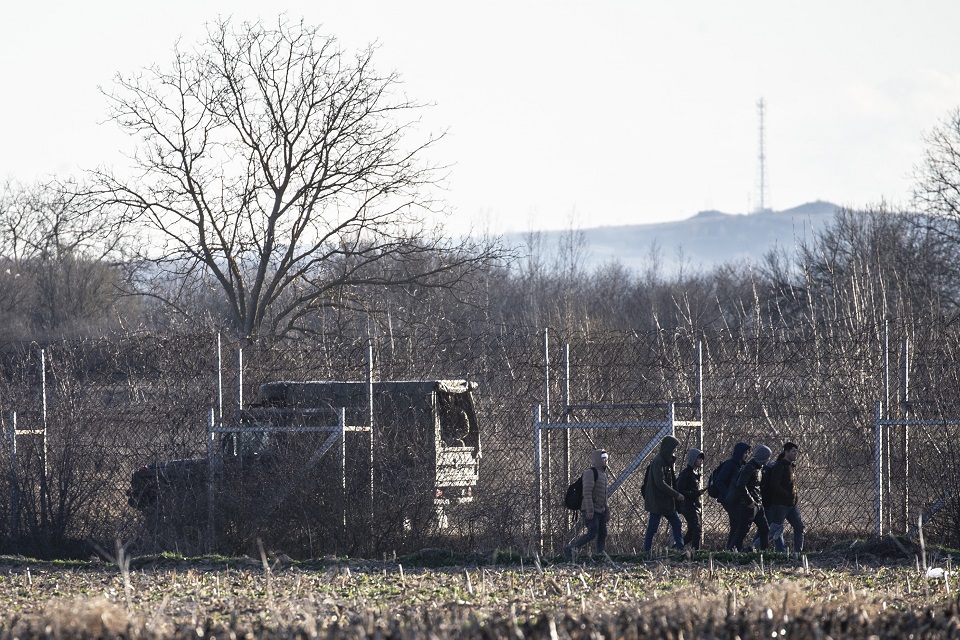
TRT Arabic Map Bypasses All Former Yugoslav Countries
The other route from Turkey heads Northwest, bypassing all the countries of the former Yugoslavia, then passes through Bulgaria, Romania, Hungary, Austria, where the road branches in two directions: one towards Germany and on towards France, writes Dnevnik.
Turkish President Recep Tayyip Erdogan has threatened European Union countries with a new migrant crisis if they do not support his efforts in the Syrian civil war and provide Turkey with additional aid for housing migrants.
EU governments have refused to increase financial aid to Recep Tayyip Erdogan’s Turkey under the terms of their €6 billion migration deal, insisting Europe would not bow to threats from Ankara over opening its border with Greece, according to the Financial Times on March 6, 2020.
Following an emergency meeting in Zagreb on Friday, EU27 foreign ministers held firm on their criticism of Mr Erdogan for using migrants for “political purposes” after a build-up of refugees on the Greek-Turkish border. Mr Erdogan had vowed to open the country’s frontier with Europe over the weekend, sparking the prospect of a new refugee crisis.
Germany has been pushing for more financial support for Mr Erdogan to stave off any repeat of Europe’s 2015 migration crisis. Before the events of this week, member states had discussed the possibility of freeing up about €1 billion from the EU’s current budget for the Turkey facility. But ministers on Friday said they would not ramp up aid in response to pressures on the Greek border.
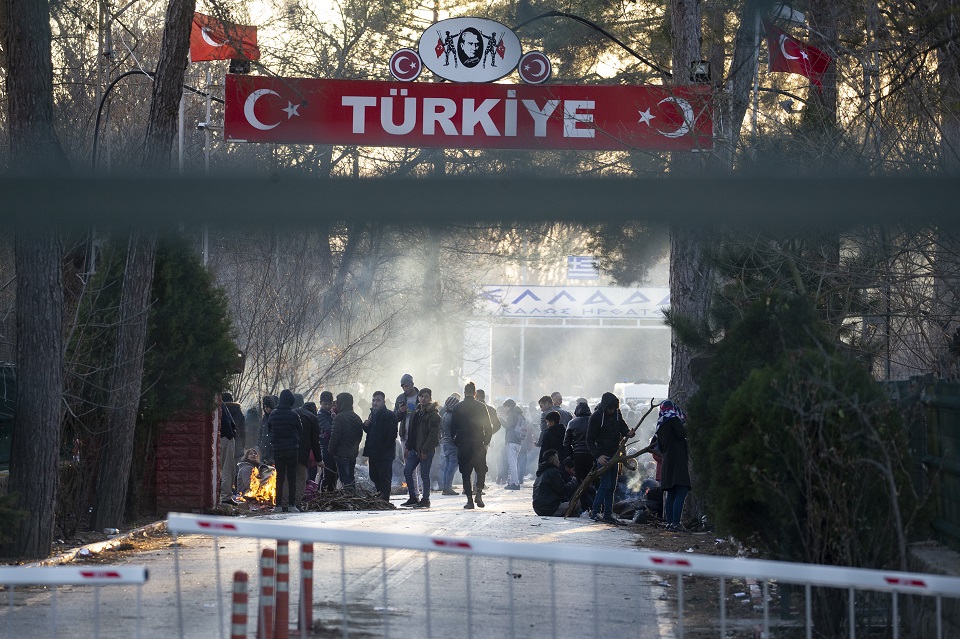
Turkey Demands More EU Aid to House Migrants
Turkey has demanded more financial help to integrate the nearly four million refugees in the country. The EU has been paying out cash to projects to help the integration process since 2016 but key programmes are due to run out of money soon. Ankara has complained that the cash disbursements are too slow and accused the EU of failing to live up to its promises to liberalise visas for Turks as agreed under the deal.
European governments have disagreed over how to engage with Turkey after Mr. Erdogan’s comment prompted thousands of refugees to head to the border with Greece, sparking violent clashes. Athens has pushed for a tough condemnation of Mr. Erdogan’s actions but has met resistance from Berlin and The Hague, which want to keep diplomatic ties open with Ankara.
EU diplomats monitoring the border developments said the flow of migrants towards Greece had stopped in recent days and Mr Erdogan was back in compliance with the terms of the 2016 deal.
Follow this page and our Politics page for Total Croatia News updates on the migrant crisis in Croatia.
Croatia Migrant Crisis: Interior Minister Will Not Send Army to Border
March 2, 2020 - Davor Božinović, the Interior Minister of Croatia, emphasised that there is no need to send the army to the border, because Croatia deals with illegal migrants daily. He added that Croatia’s border protection system maintains communication with colleagues from other countries on every level. And they are working together to pursue a diplomatic solution.
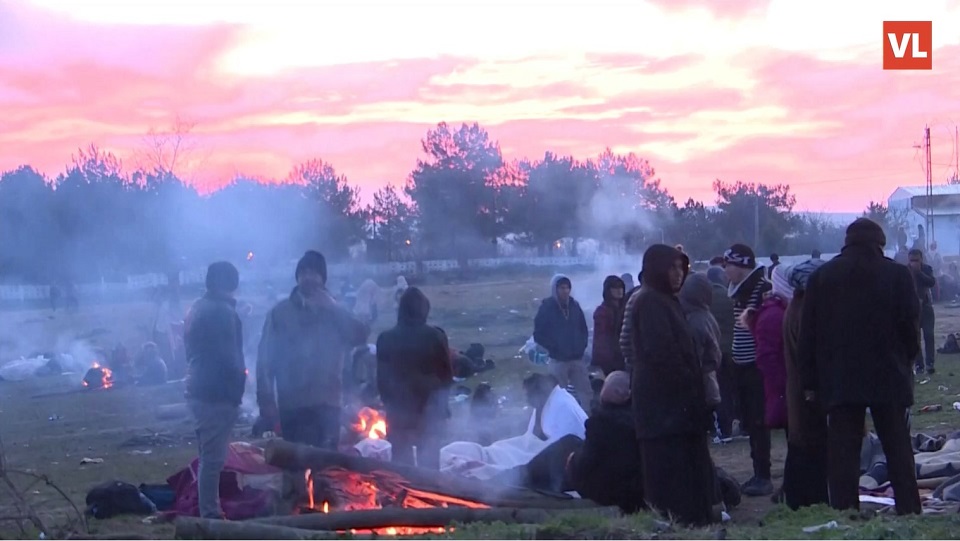
Croatia Eastern Border: No Increase in Illegal Migration
“There has been no reported increase in illegal migration on Croatia's eastern borders. The police are doing their job and the situation is no different than yesterday or the day before. Croatia has been dealing with illegal migration every day for almost three years now. That is why, even with these new circumstances, we can confirm that our border protection system fully operational and doing its job,” Interior Minister Davor Božinović said today. He noted that presently there is no need to send the army to the Croatian border, even though that remains a legal possibility, according to Marina Borovac/Večernji List on March 2, 2020.
“We will see how the situation on the Greek and Bulgarian borders develops, in relation to Turkey’s recent actions (release of migrants from their country). We are in close contact with our colleagues (from other countries) on every level. One direction we are going is certainly the diplomatic route. After all, the President of the European Council, the President of the European Commission and the President of the European Parliament will visit the Greek border tomorrow to see the situation there. At the same time, talks are underway with the Turkish leadership, which is part of the diplomatic role. The aim is to return to the EU-Turkey agreement of 2016,” Božinović added, and is confident that diplomacy would be the goal.
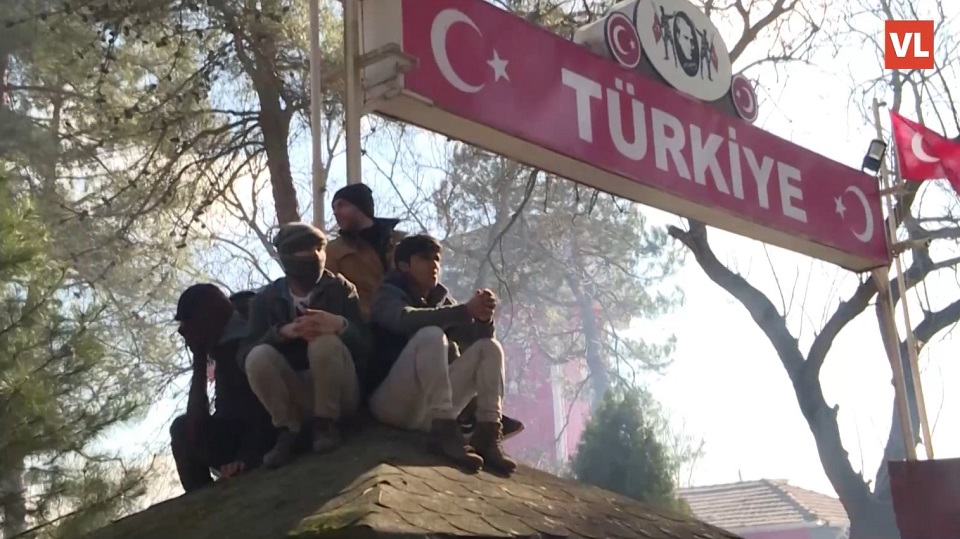
Croatia Will Discuss Border Assistance to Greece, Bulgaria
Božinović announced an upcoming meeting of European interior ministers to discuss what assistance can be sent to Greece and Bulgaria. He says both countries are committed to deterring illegal migration, which is in the wake of the new European Commission's policy regarding the protection of the EU's external borders. Božinović recalled that there was a migrant wave in 2015 because Greece had allowed migrants to pass through their territory.
“This is the only way to prevent the 2015 and 2016 scenario from happening again. Today, not only Greece, but every country has made their objectives very clear regarding the protection of their borders along the so-called Western Balkan route,” the interior minister concluded.
Croatia will emphasize its plight with protecting Europe's borders, but reiterates that the issue of the migrant crisis can only be resolved through (the agreement upon) a common European policy.
Follow our Politics page and this page to keep up-to-date on the migrant crisis along the Western Balkan route in Croatia.
Croatia: Dubrovnik Police Rescue 36 Migrants on Inflatable Dinghy in Aegean
During surveillance of the European Union's maritime border with Turkey, as part of the Frontex Poseidon mission, four naval officers from Dubrovnik, Croatia rescued 36 migrants from an unmanned dinghy in the Aegean Sea on February 10, according to Dubrovnik police who were monitoring the area.
A migrant dinghy was observed in the area from the Evros (Marica) river delta heading toward Makri, Greece. Cries were heard from the small inflatable vessel, and officers immediately came to the rescue.
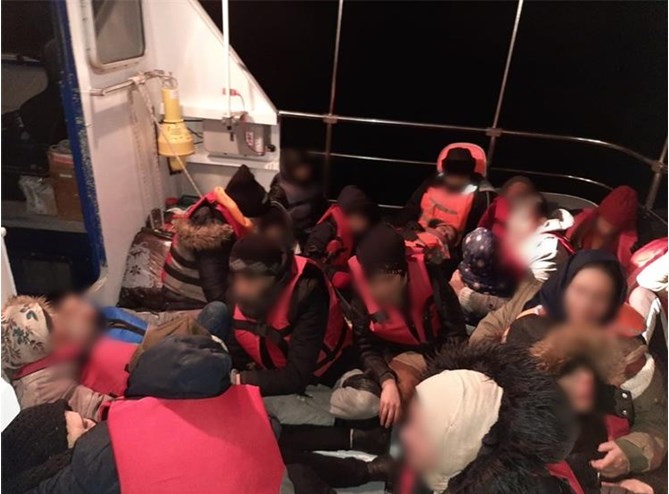
Croatia Police: Migrants on Dinghy Chilled, Dehydrated, Unconscious
"They found 36 foreign nationals on the dinghy, including five children, 11 women and 20 men. All were in poor health: chilled, dehydrated and some were unconscious. The inflatable had run out of fuel and the sea temperature where they were found was only 2 degrees Celsius. It is difficult to say what might have happened to them had they not been rescued,” the Dubrovnik-Neretva Police Department pointed out.
The migrants were transported to a police vessel where officers provided them with water, hot drinks and thermal foil to warm them, after which they were transported to the port of Alexandropolis. They were met there and put under the care of the Emergency Medical Service according to Index on February 14, 2020.
"Out of the 36 migrants, five were hospitalized, while the rest, after receiving medical assistance, were transported to a reception center following further treatment in accordance with national and European legislation," the Dubrovnik police added.
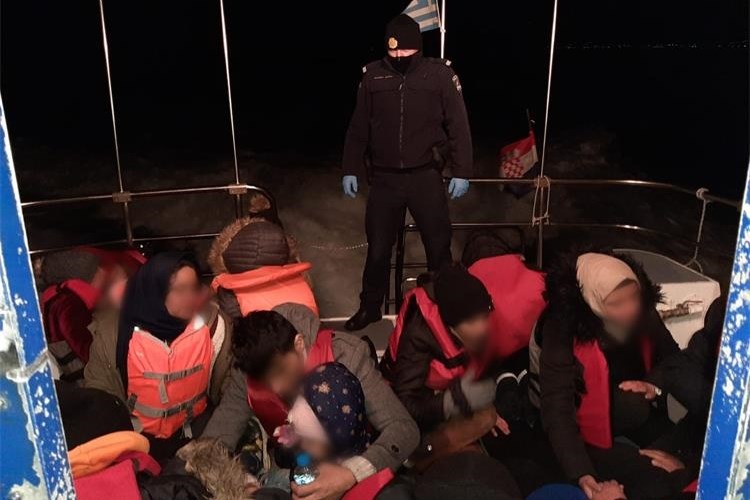
Greece Reports 60,000 Migrant Arrivals in 2019, 4,100 Arrivals in 2020
Following more than 60,000 arrivals last year, more than 4,100 refugees and migrants have reached Greek shores so far in 2020.
Recently, the Croatian parliamentary Committee on Home Affairs and National Security unanimously decided to conduct direct oversight of Croatian police work following complaints about the police treatment of migrants, Committee Chairman Ranko Ostojić (SDP) told the press after the committee meeting on February 6, 2020.
An archive of Total Croatia News coverage on the migrant crisis in Croatia can be accessed here.
Interior Minister Attending Marrakesh Migration Conference
ZAGREB, December 10, 2018 - Croatian Interior Minister Davor Božinović is attending the Marrakesh migration conference. He said that until now the UN had never systematically dealt with migration and that if it had, perhaps the big migration crisis which hit Europe in 2015 could have been avoided.
"This is a global problem which the United Nations has decided to start dealing with. The pace it will take is uncertain and how long it will take is also uncertain. However, it's a fact that a solution to a global challenge can be sought only globally," Božinović told Croatian reporters ahead of a meeting on Monday and Tuesday at which representatives of over 100 countries are expected to endorse the Global Compact for Safe, Orderly and Regular Migration.
Asked if one should be afraid of this document, he said there was "absolutely nothing" to fear about it.
"It is a document which I would say is a process of regulating migration in the future so that we don't have what we have on Croatian borders today. On the one hand, there are countries from which people are coming and one should address why they are coming, how to help them stay in their countries. On the other hand, there are countries which want the workforce as well as countries which, like Croatia, are transit countries, and these matters must be regulated."
Božinović said that from the start Croatia's policy had been not to allow illegal entry and strong diplomatic activity. "We have managed to raise awareness in the EU of the issue of countries on the Balkan route because the issue of migration through Bosnia and Herzegovina, Montenegro and Macedonia wouldn't have been on the agenda without Croatia's engagement."
He said that in Marrakesh he would talk with representatives of the countries from which migrants were coming, such as Algeria, Iraq, Afghanistan, Pakistan and Turkey so as to, "not just bilaterally but also at EU level", focus efforts on helping them keep their citizens.
Asked why many countries would not endorse the Global Compact, Božinović said "the majority of EU member states support the agreement" and took part in its preparation. "I think it's a delicate issue. However, Croatia is very clear and transparent about this. We won't allow illegal migration but we are with all those who wish to resolve this issue at the source."
"It is a fact that many actors are using this issue for internal political breakthroughs by releasing news that are unrealistic and untrue. There are also attempts to scare people with the migrant issue but everyone who lives in Croatia knows that we are very firm about this, that we will stay firm and that there's no need to believe those spreading fake news. Migration is here, it won't go away, but the organisation of the Croatian police and the Croatian state guarantees all our citizens and all of Croatia's guests that they will be safe."
Božinović said arrests for trafficking in humans had jumped 88% from 2017 and that this showed how efficient Croatian police were.
"I am sure that we have a realistic policy focused on the well-being of Croatian citizens and if the world comes together about this issue sooner or later, if everyone defuses tensions a little, I'm sure we will start coming closer to solutions. Let's be realistic. Whatever anyone claims, if the EU hadn't reached an agreement with Turkey and if Turkey hadn't closed its borders, who knows what Europe would look like today," he said.
You can find more on Croatia’s migration policies in our special section.
Local TV Stations Temporarily Suspended over Anti-Migrant Hate Speech
ZAGREB, November 26, 2018 - The Electronic Media Council on Monday decided to temporarily suspend broadcasting licenses for television stations that aired the Bujica political talk show on November 5 in which anti-migrant hate speech could be heard.
The broadcasting licences will be suspended on December 3.
Z1, the Slavonia-Baranja TV station and the Osijek TV station will lose their broadcasting rights for 24 hours, while SRCE TV, Adriatic TV and TV Jadran will be off air for 4 hours.
After analysing the content of the talk show, which dealt with the Global Compact for Safe, Orderly and Regular Migration, the Electronic Media Council decided that claims made in the show, hosted by Velimir Bujanec, constituted hate speech because they described migrants as terrorists and criminals and as people who intentionally spread infectious diseases.
The show's guests were Frano Ćirko, who was introduced as the leader of an organisation called Generacija Obnove, and Zoran Grgić, introduced as an independent analyst.
"The show host did not distance himself from such hate-mongering rhetoric, except for describing it as 'a bit radical', which cannot be considered an appropriate warning that such rhetoric is not allowed... the host himself set the tone of the discussion and incited hate-mongering, discriminatory and humiliating rhetoric against migrants," the Council said.
Its chair Josip Popovac stressed that the Council's decision in no way violated the freedom of speech, noting that there were no forbidden topics but that they should be dealt with professionally, which was not the case with the show in question.
Speaking of the accountability of the guests on the said show, Popovac said that he agreed with the proposal to report the case to the Chief State Prosecutor, noting that "such abuse of public media is unacceptable".
For more on the media in Croatia, click here.
Fortress Europe: Video Interviews with Croatian Police, NGOs, Migrants
There have been several allegations of Croatian police brutality against migrants attempting to enter Croatia from Bosnia and Hercegovina in recent weeks. Redfish media interviews the Croatian police, migrants and NGOs in an on-site documentary, released on November 18, 2018.
The recent report by The Guardian alleging Croatian police brutality against migrants on the border with Bosnia and Hercegovina (you can read more about that and the police response here) brought the issue of migrants trying to enter the EU into the international spotlight. A second, more detailed look at what is happening on the ground has been released by redfish media, a documentary report which talks to all sides of the problem - migrants, NGOs and the Croatian police, as well as asking if the tactics allegedly being used on this EU border are part of an agreed policy by the EU. redfish introduces the video, as follows:
"Everyone seems to have forgotten that refugees are still trying to find a safe home in Europe. Its borders are heavily fortified, and even when refugees manage to get in, more and more people are reporting that European border police are torturing, beating and illegally deporting refugees back out of the European Union. Meanwhile, the mainstream media and politicians deflect attention to "problems" caused by refugees inside the borders of the EU..
"redfish travelled to the border between Bosnia and Croatia to meet those victims of Fortress Europe for whom nobody seems to speak up anymore."
About redfish:
We started redfish to create a platform for the people who are at the heart of their own stories and to acknowledge that those stories are always part of a big picture which connects us all. - Visit the redfish website to learn more.
For the latest on the migrant crisis, keep up to date with TCN's dedicated section.
The Guardian Publishes Migrant Footage of Alleged Croatia Police Brutality
“I feel sorry for these people,’’ says a Bosnian policeman on guard. ‘‘They remind me of the Bosnians when the war devastated our country.’’
****
The Guardian published a featured article on the plight of migrants on the Bosnian - Croatian border on November 14, 2018. Entitled 'They didn't give a damn': first footage of Croatian police brutality, the article includes a video which The Guardian describes as 'footage shows asylum seekers allegedly beaten by Croatian police'.
The video is part of a wider report by The Guardian, which has been looking into complaints from migrants in Bihac and Velika Kladusa about Croatian police brutality.
The video provoked plenty of online commentary on YouTube, with the three main sentiments being skepticism about the video, a lack of sympathy with the plight of the migrants, and strong support for the alleged actions of the Croatian police.
You can read the full article in The Guardian here.
The Croatian Ministry of the Interior has responded to the article. Read more here.
MPs Question Government about Migrants, Fake News
ZAGREB, November 14, 2018 - During question time in parliament on Wednesday, independent Mirando Mrsić warned about "the spreading of fake news and hysteria about migrants", inviting Prime Minister Andrej Plenković that they visit migrants together and make a statement that they were welcome in Croatia.
"How many crimes were committed by migrants over the past year? How many persons have applied for asylum and how many have been granted it?" Mrsić said. He in particular called out Živi Zid MP Ivan Pernar over spreading fake news about migrants.
Plenković agreed that there was a wave of hysteria and panic over illegal migration and urged politicians and the media not to spread hysteria unnecessarily. "We will continue to protect the border from illegal migration and when it comes to legal migration or a humanitarian approach, when it comes to people seeking asylum, we will act in line with our and European regulations, pursuing a responsible policy and eliminating the existing hysteria, drama and panic," he said.
Mrsić called on parliament's speaker and presidency to distance themselves from Pernar's statements and on the government not to allow the spreading of untruths in the media and rampant intolerance in society.
Miroslav Tuđman of the ruling Croatian Democratic Union (HDZ) asked about the security aspect of illegal migration. Interior Minister Davor Božinović recalled that Croatia has the longest external land border in the European Union, bordering on non-EU states, which he said was a challenge which no state could resolve alone. "Illegal migration is also a security issue," he said, adding that the government had asked that the states south of Croatia be included in dealing with the issue.
MP Bruna Esih of the Independents for Croatia party harshly criticised Prime Minister Andrej Plenković because of the UN Global Compact for Migration, claiming that he had “long ago shown” that the fate of “hysterical” Croatians isn't one of his priorities, while the prime minister retorted that the point of that document is to manage regular migrations and called on Esih to state what she found problematic in that document other than her impressions.
Esih questioned why so many EU member states were opposed to the U.N. pact on migrations. "Why all the heated debate, for God's sake, when its contents, as Mr Jandroković instructed us, are undisputed and unbinding," said Esih.
Plenković ironically responded that he gives her a "plus for her effort with her second query," hinting at the fact that she has only once raised any issue during question time in parliament so far. "The document you are referring to is the UN's response to a phenomenon that has occurred in Europe and the world in 2015 and 2016. And Hungary alone has expressed reservation to that document," Plenković explained.
Not one expert, he underscored, views it as a dramatic bomb, apart from certain actors and political parties with similar worldviews, who are trying to gain some points from this issue, he said. MP Esih said that she wasn't satisfied with Plenković's response.
Responding to a question by SDP MP Josko Klisović with regard to Croatia's foreign policy about the UN Global Compact on Regular Migrations, Plenković said that at not one moment in the past two years did he hear anyone say there were any problems with that document.
"I didn't hear that from the president either except that she intended to go to Marakesh and then said she wouldn't go. I didn't hear that any particular sentence was a problem, any formula or anything in the Global Compact about legal migrations. So as far as I am concerned, there is no disunity here," Plenković said in his comment on the recent statements made by President Kolinda Grabar-Kitarović on the Global Compact that is to be endorsed in Marrakesh, Morocco, in December.
"As far as state policy on migrations is concerned, be it regular or irregular, the policy is based on three points: to prevent irregular migrations, fulfil the Schengen Area requirements and to support all international efforts whether they are related to regulating legal or preventing illegal migrants," Plenković said and added that the government would discuss the Compact this week and then forward it to parliament.
For more on Croatia’s migrant policies, click here.
Police Officer Arrested for Trafficking Migrants
ZAGREB, October 7, 2018 - A police officer from Zagreb has been arrested in Korenička Kapela while transporting in his van migrants who have illegally entered Croatia from Bosnia and Herzegovina, Lika-Senj Police reported on Sunday.


